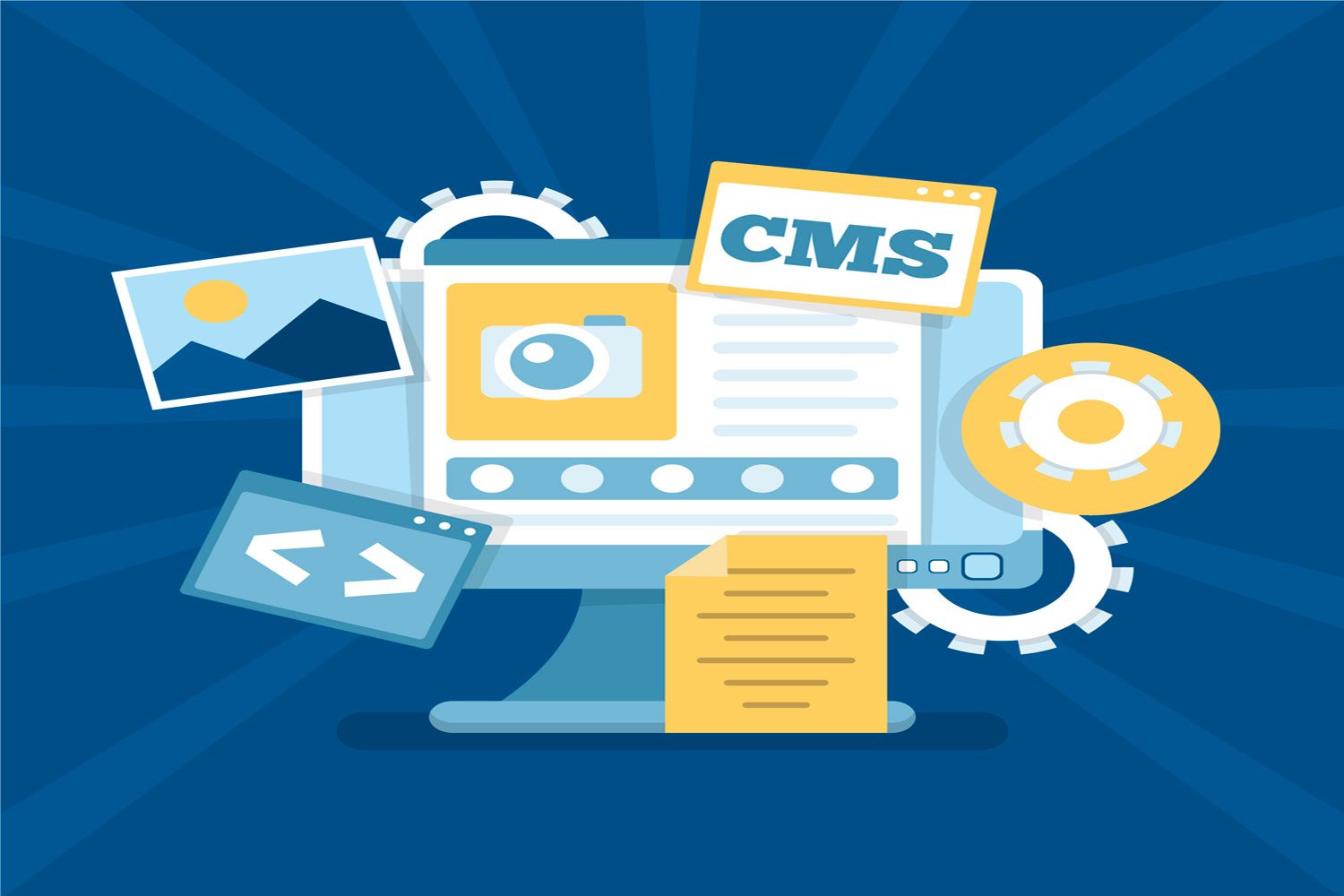
Joomla Hosting: Unlocking the Potential of Your Website
Introduction to Joomla Hosting
Joomla hosting revolves around providing the necessary infrastructure and environment tailored to support Joomla, a popular Content Management System (CMS). Choosing the right Joomla hosting provider is crucial for the performance, security, and reliability of websites powered by Joomla. It ensures that websites are accessible, load quickly, and provide a seamless user experience, which is essential for maintaining visitor engagement and achieving online objectives.
What is Joomla?
Joomla is an open-source CMS that enables users to create and manage websites and online applications. It stands out for its extensibility and user-friendly interface, making it a favored choice among web developers and content creators.
Brief History
Joomla was launched in 2005 as a fork from Mambo, another CMS. It was developed by a group of developers who sought to continue the project under open-source principles. Since then, Joomla has grown into one of the most popular CMS platforms in the world, boasting a vast community of users and developers.
Key Features
Joomla offers a wide range of features that cater to various website needs, from simple blogs to complex corporate websites. Key features include a powerful menu creation tool, a versatile extension system for adding functionality, and robust core functionalities that support multilingual content, user management, and templating.
Types of Joomla Hosting
The performance and scalability of a Joomla website greatly depend on the hosting solution chosen. There are several types of Joomla hosting available, each catering to different needs and budgets.
Shared Hosting
Shared hosting is the most cost-effective option, where multiple websites share the same server resources. It’s ideal for small websites with low to medium traffic levels. However, the shared environment may lead to limited resources and slower response times during peak traffic periods.
VPS Hosting
Virtual Private Server (VPS) hosting offers a middle ground between shared and dedicated hosting. It provides users with a virtualized server environment, offering more control and dedicated resources. VPS hosting is suitable for websites that have outgrown shared hosting but do not yet require the resources of a dedicated server.
Dedicated Hosting
Dedicated hosting provides a website with its own server, offering maximum control, performance, and security. It’s best suited for large, high-traffic websites and those with specific server configuration requirements. While offering superior performance, dedicated hosting comes at a higher cost.
Cloud Hosting
Cloud hosting utilizes a network of virtual servers that pull from a pool of physical servers. It offers scalability, reliability, and flexibility, allowing websites to handle varying traffic levels efficiently. Cloud hosting is ideal for websites that experience sudden traffic surges, as resources can be adjusted almost instantly to meet demand.

How to Get Started with Joomla Hosting
Getting started with Joomla hosting involves a few critical steps that set the foundation for a successful website. From choosing a domain name to installing Joomla and optimizing site performance, each step is crucial in ensuring a smooth and efficient online presence.
Choosing a Domain Name
The first step in establishing a Joomla site is selecting a domain name. This name acts as your website’s address on the internet and should reflect your brand or the content you plan to publish. Consider a name that is short, memorable, and easy to spell. Once you’ve decided on a domain name, purchase it through a reputable domain registrar.
Installing Joomla
After securing your domain name and choosing a Joomla hosting provider, the next step is to install Joomla. Many hosting providers offer a one-click installation process for Joomla through their control panel, simplifying the setup process. Here’s a general overview of the steps involved:
- Access your hosting control panel: Log in to your hosting account and locate the control panel provided by your host.
- Find the Joomla installer: Look for a section dedicated to website or CMS installations. This is often labeled as “One-Click Installs” or something similar.
- Initiate the Joomla installation: Select Joomla from the list of available CMS options and follow the prompts. You’ll typically need to choose a domain to install Joomla on, set an admin username and password, and possibly configure a few basic settings.
- Complete the installation: After configuring the settings, proceed with the installation. Once completed, you’ll receive a confirmation with details on how to access your new Joomla site’s backend.
Optimizing Your Joomla Site for Performance
Optimizing your Joomla site is essential for ensuring fast loading times and a smooth user experience. Key areas to focus on include caching, image optimization, and minimizing extensions.
Caching
Caching is a process that stores copies of your site’s files, reducing the load on your server and speeding up access for your visitors. Joomla comes with built-in caching options that can be enabled through the Global Configuration settings in the backend. Experiment with the available caching settings to find the best balance between site performance and content freshness.
Optimizing Images
Large images can significantly slow down your website. To optimize images for your Joomla site, compress them without losing quality before uploading. There are several online tools and Joomla extensions available that can automate this process, ensuring your images are web-optimized.
Minimizing Extensions
While Joomla extensions add functionality to your site, having too many can slow it down. Review the extensions you have installed and remove any that are not essential. For the extensions you do keep, ensure they are up to date and well-maintained by their developers, as this can also impact site performance.
Security Tips for Joomla Sites
Securing a Joomla site is paramount to protecting your data and ensuring your visitors have a safe experience. Implementing best practices in security can significantly reduce the risk of vulnerabilities and attacks.
Regular Updates
One of the most effective ways to secure your Joomla site is to keep the Joomla core, templates, and extensions up to date. Updates often contain patches for security vulnerabilities that have been discovered since the last version. Set up a schedule for checking and applying updates promptly to ensure your site benefits from the latest security enhancements.
Strong Passwords
Utilize strong, unique passwords for your Joomla admin area, database, and hosting account. A strong password should include a mix of letters, numbers, and special characters and be changed regularly. Avoid using easily guessable information such as birthdays or common words.
Security Extensions
There are numerous security extensions available for Joomla that add an extra layer of protection to your site. These extensions can offer features like firewall protection, security audits, malware scanning, and more. Research and install reputable security extensions to enhance your site’s defense against potential threats.

Troubleshooting Common Joomla Hosting Issues
Running a Joomla site smoothly requires ongoing management. Here are some common issues you might encounter and tips on how to address them.
Performance Issues
Performance issues can arise from a variety of sources, including overloaded servers, unoptimized images, or excessive extensions. To address these, consider upgrading your hosting plan for more resources, optimizing your images for the web, and reviewing your installed extensions and templates for any that are unnecessary or resource-intensive. Implementing caching and content delivery networks (CDNs) can also improve site speed.
Security Concerns
Security concerns can include vulnerabilities to hacking, malware, or spam. Regularly update all aspects of your Joomla site, use strong passwords, and install security extensions to mitigate these risks. Additionally, regularly back up your site so that you can quickly recover in the event of a security breach.
Extension Conflicts
Extension conflicts occur when two or more extensions interfere with each other’s functionality. If you suspect an extension conflict, deactivate your extensions one by one to identify the culprit. Once identified, check the extension’s documentation or support forums for solutions, or consider finding an alternative extension that offers similar functionality without the conflict.
By staying vigilant with updates, prioritizing security, and being proactive in managing and troubleshooting, you can maintain a secure and efficient Joomla site. Regularly reviewing your site’s performance and security posture can help you identify potential issues before they become significant problems, ensuring a smooth experience for both you and your visitors.
Future of Joomla Hosting
The landscape of Joomla hosting is continually evolving, shaped by emerging trends and technological advancements. As we look toward the future, several key factors are poised to influence how Joomla sites are hosted, managed, and scaled.
Trends and Predictions
The future of Joomla hosting is likely to be characterized by increased integration of artificial intelligence and machine learning technologies, enhancing security measures, site performance optimization, and automated site management tasks. The use of green hosting solutions is also expected to rise, reflecting a growing emphasis on sustainability within the tech industry.
The Role of Cloud Hosting
Cloud hosting is set to play a pivotal role in the future of Joomla hosting, offering scalability, reliability, and flexibility unmatched by traditional hosting solutions. With cloud hosting, Joomla sites can easily scale resources up or down to accommodate traffic fluctuations, ensuring optimal performance while managing costs effectively.

Joomla Hosting for E-commerce
Joomla, with its robust extensions like VirtueMart, offers a powerful platform for e-commerce sites. However, hosting a Joomla-based e-commerce site presents unique challenges and considerations.
Special Considerations
E-commerce sites typically require enhanced security measures, high-performance hosting to handle increased traffic, and seamless integration with payment gateways. Choosing a Joomla hosting provider that offers robust security features, dedicated e-commerce support, and high uptime guarantees is crucial for maintaining a reliable online store.
Recommended Providers
When selecting a Joomla hosting provider for e-commerce, look for those with a strong track record in performance, security, and customer support. Providers that offer specific e-commerce optimizations, SSL certificates, and dedicated IP addresses are preferable. Some well-regarded Joomla hosting providers for e-commerce include SiteGround, A2 Hosting, and InMotion Hosting, known for their Joomla expertise and comprehensive e-commerce support.
Conclusion
Summary of Key Points
The future of Joomla hosting is geared towards leveraging advanced technologies like cloud hosting and artificial intelligence to enhance site performance and security. For Joomla-based e-commerce sites, selecting a hosting provider that offers specialized services and robust support is essential for success.
Final Recommendations
For businesses and individuals looking to launch or grow their Joomla site, especially in the e-commerce sector, it’s important to stay informed about the latest hosting trends and technologies. Opting for cloud hosting solutions and selecting providers that offer specialized e-commerce features can provide a competitive edge. Always prioritize security, scalability, and support when choosing your Joomla hosting provider to ensure a successful and sustainable online presence.

Muhammad Saleem is the Managing Editor of Astraic, a leading online publication that covers the Web development and Digital Marketing. He has over a decade of experience in this industry, and has worked as a journalist, editor, and analyst for a variety of publications and organizations.

